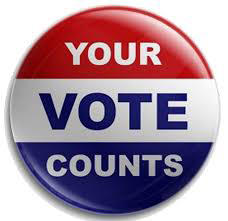At a minimum, our election system should ensure that voters have the opportunity to hold elected officials accountable for their actions. For the most part, this is not the case in Long Beach.
All 9 Long Beach City Councilmembers set policies that decide the future of the city and impact residents or business owners. Yet, under our current system, registered voters are allowed to vote for only 1 of those 9 councilmembers. The same system allows all voters to elect a mayor. However, the mayor does not vote at council meetings, often denying residents an understanding of where the mayor stands on issues, and in turn an opportunity for voters to hold the mayor accountable for his or her decisions.

We believe that more accountability results in more people participating in the political process, resulting in a higher voter turnout – which is certainly needed for most Long Beach elections. It is simply illogical that city councilmembers have won elections with as few as 1,000 votes when there are 275,000 registered voters in the city. We also believe that with improved accountability and increased voter turnout – and a few changes to the system – more individuals will run for local office.
As we pointed out in the last edition of the Business Journal, there is a strong possibility that the five councilmembers up for reelection in 2018 – along with the mayor, city attorney, city auditor and city prosecutor – may run unopposed. This denies voters the opportunity at the ballot box to voice their opinion on the job performance of their elected officials. It would also mean voters must wait eight years to vote for these offices. That is not a healthy prospect. Elected officials should not get a free ride.
While any system has flaws, we believe an overhaul of the local election system is necessary. The following recommendations tackle the key issues of accountability, voter turnout, the number of people seeking office . . . and improved transparency.
We are recommending changing to a mixed system – a combination of district and citywide city council seats. Here’s what we propose:
• Allow the mayor to vote on all issues;
• Reduce the number of city councilmembers to 8;
• Reduce the number of districts from 9 to 6;
• 6 councilmembers would be elected by district;
• 2 councilmembers would be elected citywide by all voters;
• Increase term limits for councilmembers to three four-year terms – a combination of district or citywide;
• Eliminate the port and airport from city council districts. These city assets should be free of undue pressure from a district representative.
The above recommendations would allow all voters to vote on 4 of the 9 elected officials who cast votes at city council meetings, significantly increasing accountability and voter participation.
Because each of the six council districts would add about 25,000 more constituents – increasing from about 55,000 currently to about 80,000 – the budgets of each council district (currently about $450,000 each) would be increased from the savings provided by eliminating one city council seat.
These are “part-time” councilmembers who currently spend much of their time on district issues, limiting the amount of time they devote to citywide matters. Additionally, under the City Charter, councilmembers set policy for city staff to carry out under the authority of the city manager. Some councilmembers create more work for themselves by overstepping their role and directing staff what to do. That needs to stop.
This mixed system – which more large cities are turning to according to the National League of Cities – would allow the two citywide councilmembers, along with the mayor, to concentrate on citywide issues. That is certainly needed for items related to public safety, infrastructure, planning and building requirements, minimum wage, etc., and would better serve residents and business owners.
There are a few other items we encourage voters to support: (1) if an elected official runs for higher office, they must vacate their city office; (2) if a councilmember runs for mayor, city attorney, city auditor or city prosecutor, they must vacate their city council office; and (3) the mayor should not endorse in city council races.
Our recommendations are not an indictment of current elected officials; they are following the rules. Our goal is simple: have the mayor and city councilmembers be more accountable to more registered voters, and increase the participation rate in local elections. We would hope that is something everyone can agree on.
We encourage the mayor and city council to hold meetings throughout the city for input, and then place this item – with some fine-tuning from the city attorney’s office – on the ballot next April. Residents and business owners – all stakeholders in the future of the city – deserve an opportunity to weigh in on improving the local election system.
Who knows, it may be the only vote they cast next April.
